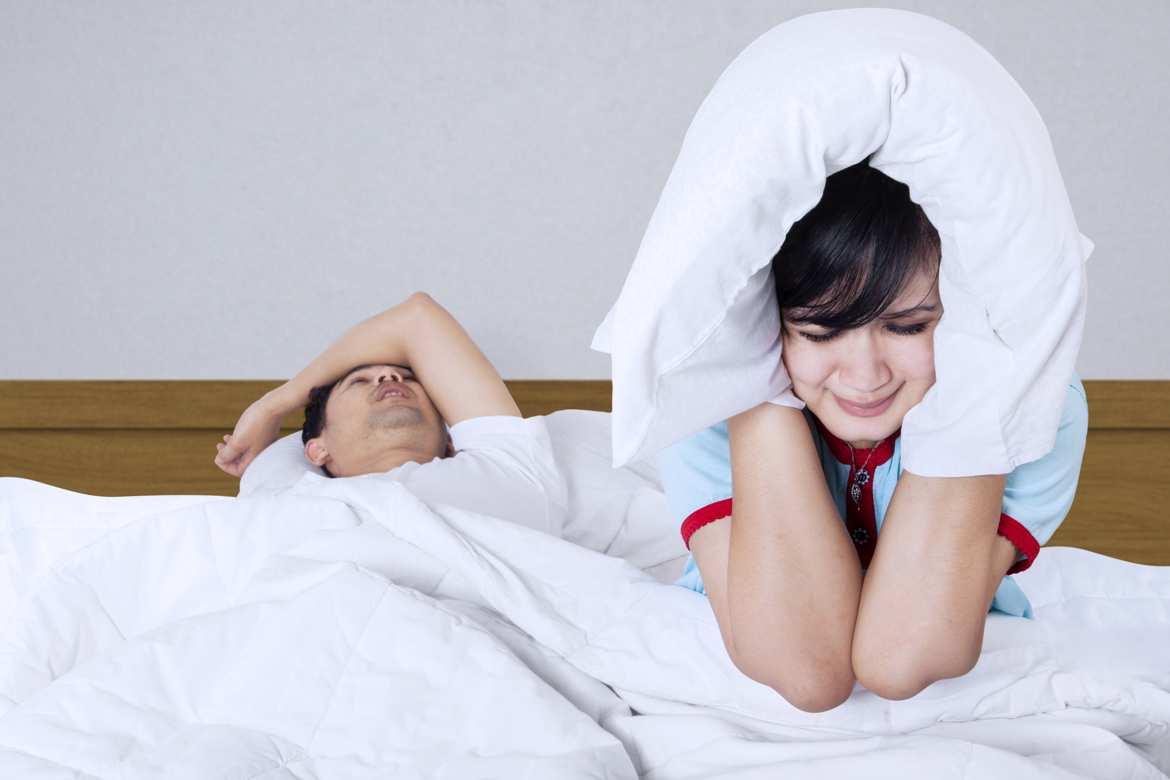What is a sleep disorder?
A sleep disorder is a clinical condition whereby a person experiences disrupted or poor quality sleep on a regular basis. Depending on the type of disorder, the quality, duration or timing of sleep may be affected.
Getting restful sleep is important as it allows the body to rest and repair itself. Most adults typically need an average of 6 – 10 hours of sleep daily. Children need more, while the elderly tend to awake more often and have less deep sleep.
Having a sleep disorder affect one's ability to function properly in the day. It also has a negative impact on both physical and mental health, work performance, interpersonal relationships and safety. Left unresolved, sleep disorders result in a reduced quality of life and increased chances of disease and death.
Types of sleep disorders
Sleep disorders span a wide spectrum. Common sleep disorders include:
Insomnia
Insomnia is when you have difficulty falling or staying asleep. It can be acute, lasting from one to a few nights, or chronic, when it happens at least 3 times a week for a month or longer. Insomnia happens more frequently among older adults and women.
Sleep apnoea
Sleep apnoea is a serious condition where your breathing is interrupted or stopped repeatedly during sleep due to a blocked airway. You may wake up gasping for air because your body is trying to take in more oxygen, or find yourself suffering from excessive daytime sleepiness.
There are 2 types of sleep apnoea: obstructive sleep apnoea (OSA), which is more common and caused by physical obstruction of the upper airway, and central sleep apnoea (CSA), which occurs when the brain fails to send signals to the muscles that control breathing.
Narcolepsy
Narcolepsy is characterised by excessive daytime sleepiness and/or uncontrollable episodes of falling asleep as you go about your daily activities. It can also cause sudden muscle weakness and sleep paralysis, where you are unable to move just after waking up.
Restless leg syndrome
Restless leg syndrome refers to an intense, irresistible urge to move your legs, usually when you are lying in bed or sitting down for prolonged periods of time. It tends to happen at night, making it difficult for you to fall asleep and stay asleep.
Parasomnias
Parasomnias are sleep disorders that cause abnormal behaviour while sleeping. These can range from sleep talking and sleepwalking to teeth grinding (sleep bruxism), night terrors, confusional arousals, and sleep paralysis.
What are the symptoms of sleep disorders?
These vary greatly depending on the type and severity of the disorder. If you have a sleep disorder, you may experience any of the following symptoms:
- Difficulty falling or staying asleep
- Frequent awakening at night
- Excessive sleepiness during the day
- Falling asleep suddenly at inappropriate times, such as during work or while driving
- Difficulty thinking, remembering things, or concentrating on tasks
- Delayed response to stimuli
- Emotional instability
- Sleep deprivation
- Irregular sleep-wake cycle
- Breathing disturbances during sleep, such as snoring, gasping or choking
- Abnormal movements or experiences during sleep, such as seizures or frequent nightmares
Speak to a doctor if you feel tired even though you think you're getting enough sleep, or if your sleep problems are affecting your quality of life.
What causes sleep disorders?
It can be hard to pinpoint the specific cause of a sleep disorder. In some cases, the sleep disorder is actually a symptom of another health problem you are having, such as diabetes or hypothyroidism. Such sleep disorders tend to resolve themselves once the underlying medical condition is treated.
On the other hand, chronic sleep disorders may be caused by a combination of stress, mental health issues, ageing, lifestyle or environmental factors. These include:
- Poor sleep hygiene habits, such as napping in the day or watching TV before sleep
- An irregular schedule that disrupts your circadian rhythm and sleep-wake cycle, such as working night shifts
- Mental illnesses, such as depression and anxiety
- Certain medicines, such as heart medication and antidepressants
- Caffeine and alcohol consumption
- Genetics, especially for narcolepsy
- Ageing
What are the risk factors for sleep disorders?
You are at higher risk of developing a sleep disorder if you:
- Are above the age of 40
- Are female, as women are twice as likely to experience insomnia as men
- Are obese, as fat deposits around your neck (i.e. a double chin) can obstruct breathing and lead to obstructive sleep apnoea
- Are depressed, anxious or under a lot of stress
- Have an irregular sleep-wake cycle
- Have a family history of sleep disorders, especially insomnia and sleep apnoea
- Have certain medical conditions that are associated with sleep disorders, such as congestive heart failure, high blood pressure, type 2 diabetes, Parkinson's disease, hormonal disorders, polycystic ovary syndrome (PCOS) and asthma
- Smoke heavily
- Consume excessive amounts of caffeine or alcohol
Sleep disorders have been linked to various complications and medical conditions such as:
- Mental health issues, including depression, anxiety and obsessive-compulsive disorder (OCD)
- Cardiovascular diseases, including high blood pressure, arrhythmias, heart attacks, heart failure and strokes
- Metabolic dysfunction, including obesity, diabetes and high cholesterol
- Chronic liver disease
- Autoimmune disorders
How do you prevent sleep disorders?
While some sleep disorders are caused by underlying medical problems, others may be prevented by modifying your lifestyle or adopting good sleep hygiene habits. Tips to improve your sleep health include:
- Establish a regular sleeping and waking up routine
- Avoid napping during the day
- Avoid consuming caffeine, alcohol or a heavy meal late in the day
- Avoid smoking
- Get regular exercise, but try not to exercise close to bedtime
- Avoid using your mobile phone or doing any stimulating activities an hour before bedtime
- Ensure your bedroom is dark, quiet and at a comfortable ambient temperature








